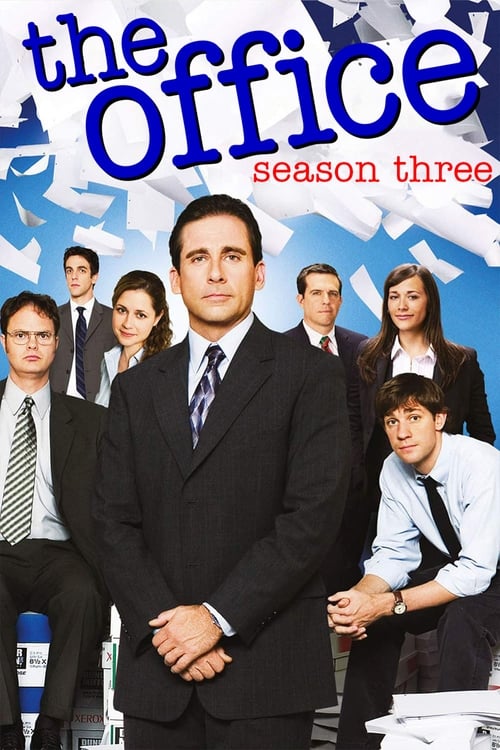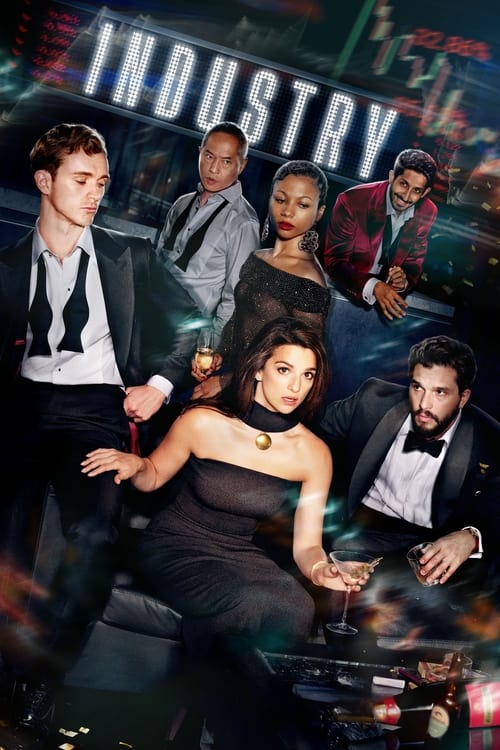
Ask Your Own Question
What is the plot?
In the season 3 premiere of The Office, titled "Gay Witch Hunt," the episode opens with Michael Scott learning that his former intern, Ryan, has been promoted to a corporate position. Michael is excited about Ryan's success but feels insecure about his own position. The day takes a turn when Michael accidentally discovers that Oscar, the accountant, is gay. In an attempt to show support, Michael awkwardly confronts Oscar and makes a series of inappropriate comments, leading to Oscar feeling uncomfortable.
Later, Michael decides to hold a meeting to address the office's attitudes towards homosexuality. He invites Oscar to speak, but the meeting quickly devolves into chaos as Michael's attempts at sensitivity backfire. He ends up making a series of offensive jokes, which only alienate Oscar further. The situation escalates when Michael decides to take Oscar out for lunch to "help him come out," but Oscar is not interested in being paraded around. The episode concludes with Michael realizing that he has made a mistake, but he still struggles to understand the impact of his actions.
In the second episode, "The Convention," Michael and Dwight attend a convention in New York City. Michael is excited about the opportunity to network and show off his branch, but he is also anxious about running into Ryan. Meanwhile, back at the office, Jim and Pam are dealing with the aftermath of their kiss. Jim is hopeful about their relationship, but Pam is hesitant and unsure about what she wants.
At the convention, Michael and Dwight meet Ryan, who is now working for corporate. Michael tries to impress Ryan but ends up embarrassing himself in front of him and other corporate employees. Dwight, on the other hand, is determined to win a sales contest at the convention. The episode culminates in a series of awkward interactions, with Michael trying to prove his worth while Dwight's competitive nature leads to a confrontation with another salesman.
The third episode, "Product Recall," begins with the office dealing with a crisis when a paper product they produced has a misprint that includes an obscene image. Michael is determined to handle the situation and calls a meeting to discuss how to manage the fallout. He insists on being the face of the company during the crisis, despite the objections of his employees.
As the day progresses, the employees scramble to contain the damage, with Angela taking charge of the situation. Michael's attempts to reassure clients and the public only make things worse, as he continues to make inappropriate comments. The episode features a subplot where Jim and Pam are trying to navigate their feelings for each other while dealing with the chaos of the recall. The episode ends with the crisis being somewhat resolved, but not without leaving a lasting impact on the office dynamics.
In "Grief Counseling," the episode opens with the news of the death of the former regional manager, Ed Truck. Michael is deeply affected by the news and decides to hold a grief counseling session for the office. However, his approach is misguided, as he tries to make light of the situation and ends up making everyone uncomfortable.
Dwight, on the other hand, is more pragmatic about death and tries to help Michael understand the seriousness of the situation. The employees express their frustrations with Michael's handling of grief, leading to a confrontation where they demand a more respectful approach. The episode highlights the emotional struggles of the characters as they deal with loss, culminating in a moment of vulnerability for Michael when he finally acknowledges his own fears about mortality.
In "Initiation," Dwight takes Ryan on a day-long initiation into the world of sales. He puts Ryan through a series of bizarre and challenging tasks, including a visit to a beet farm and a confrontation with a rival salesman. Throughout the day, Ryan becomes increasingly frustrated with Dwight's eccentricities and the absurdity of the initiation process.
Meanwhile, back at the office, Michael is trying to impress a potential client by showcasing the office's unique culture. He organizes a series of team-building exercises that go awry, leading to chaos and confusion among the employees. The episode ends with Ryan realizing that he does not want to be like Dwight and that he values his own identity over the pressure to conform.
In "The Coup," the episode begins with Michael feeling threatened by the possibility of Dwight becoming the new regional manager. He becomes paranoid and tries to sabotage Dwight's chances by undermining his authority. Meanwhile, Jan is visiting the office to conduct a performance review, which adds to Michael's anxiety.
As the episode progresses, Dwight's ambition leads him to make a bold move by trying to take over Michael's position. He attempts to impress Jan with his sales tactics, but his overzealousness backfires. The episode culminates in a confrontation between Michael and Dwight, where Michael ultimately reaffirms his position as the boss, but not without a sense of betrayal from Dwight.
In "Money," Michael decides to take on a second job to improve his financial situation. He begins working at a local restaurant, where he struggles to balance both jobs. Meanwhile, Jim and Pam are dealing with their own relationship issues, as Jim tries to navigate his feelings for Pam while she is still engaged to Roy.
The episode features a series of comedic moments as Michael tries to juggle his responsibilities, leading to a chaotic dinner shift at the restaurant. The tension between Jim and Pam reaches a breaking point when they have a heart-to-heart conversation about their feelings, but Pam ultimately decides to stay with Roy for the time being. The episode ends with Michael realizing that he cannot keep up with both jobs and must make a choice.
In "Diwali," the episode centers around Michael's decision to attend a Diwali festival with Kelly, who is excited to share her culture with the office. Michael invites the entire office to join him, but his lack of understanding about the significance of the event leads to a series of awkward moments.
As the festival unfolds, the employees experience a mix of cultural appreciation and misunderstandings. Jim and Pam's relationship continues to develop, with Jim trying to support Pam as she navigates her feelings for Roy. The episode culminates in a heartfelt moment during the festival, where the characters reflect on their own identities and relationships.
In "Branch Wars," Michael and Dwight decide to take revenge on the Utica branch after they learn that Karen, Jim's ex-girlfriend, is now working there. They devise a plan to sabotage a sales meeting, but their efforts lead to a series of comedic mishaps.
Meanwhile, Jim is caught in the middle as he tries to maintain his friendship with both Michael and Karen. The episode features a showdown between the two branches, culminating in a hilarious confrontation that highlights the absurdity of their rivalry. The episode ends with Jim realizing the importance of loyalty and friendship, even in the face of competition.
In "The Return," the episode begins with Michael's return to the office after a brief absence. He is determined to make a fresh start, but his attempts to reintegrate into the office are met with mixed reactions from his employees.
Dwight, feeling threatened by Michael's return, tries to undermine him by spreading rumors and creating chaos. The episode features a series of comedic moments as Michael tries to regain his authority while dealing with Dwight's antics. The episode concludes with Michael reaffirming his role as the boss, but not without acknowledging the challenges he faces in maintaining his leadership.
In "Ben Franklin," Michael decides to throw a party to celebrate the office's achievements. He invites a local Ben Franklin impersonator to entertain the employees, but the event quickly spirals out of control.
As the party unfolds, Jim and Pam's relationship takes center stage as they navigate their feelings for each other amidst the chaos. The episode features a series of comedic moments as the employees try to enjoy the festivities while dealing with Michael's misguided attempts at fun. The episode ends with a sense of camaraderie among the employees, despite the absurdity of the situation.
In "Women's Appreciation," the episode begins with Michael's realization that he needs to be more supportive of the women in the office. After an incident involving a lewd comment, he decides to hold a women's appreciation day to show his support.
The day takes a turn when Michael's attempts to be sensitive lead to a series of awkward moments. The women in the office express their frustrations with Michael's behavior, leading to a confrontation where they demand more respect. The episode culminates in a moment of vulnerability for Michael as he tries to understand the impact of his actions on the women in the office.
In "Beach Games," the episode centers around Michael's decision to hold a series of beach games to determine who will be his new assistant. The employees are excited about the competition, but tensions rise as they vie for Michael's approval.
As the games unfold, Jim and Pam's relationship reaches a turning point as they confront their feelings for each other. The episode features a series of comedic challenges, culminating in a dramatic moment where Michael must make a difficult decision about who will be his new assistant. The episode ends with a sense of resolution as the characters reflect on their relationships and the importance of teamwork.
In "The Job," the season finale begins with Michael interviewing for a corporate position, which creates tension among the employees. As the day unfolds, the characters must confront their feelings about Michael's potential departure.
Jim and Pam's relationship reaches a climax as they navigate their feelings for each other amidst the uncertainty of Michael's future. The episode features a series of emotional moments as the characters reflect on their time together and the impact they have had on each other's lives. The season concludes with a sense of hope and possibility as the characters look towards the future.
What is the ending?
At the end of Season 3 of The Office, the season concludes with a series of significant events that set the stage for future developments. Michael Scott is left feeling rejected after his attempts to win back Jan, who has moved on. Jim Halpert and Pam Beesly share a moment that hints at their evolving relationship. Dwight Schrute faces the consequences of his actions as he is left in a precarious position at the office. The season ends with a sense of unresolved tension and anticipation for what lies ahead.
As the final episodes of Season 3 unfold, the narrative begins with Michael Scott grappling with the fallout from his tumultuous relationship with Jan Levinson. In the episode titled "Product Recall," Michael's attempts to impress Jan lead to a series of miscommunications and misunderstandings. He is desperate to win her back, but Jan's demeanor suggests she is moving on, leaving Michael feeling vulnerable and rejected. His internal struggle is palpable as he tries to navigate his feelings while maintaining his role as the office's bumbling yet well-meaning boss.
Meanwhile, Jim Halpert and Pam Beesly's relationship takes center stage. After Jim's heartfelt confession of love to Pam in Season 2, the tension between them has been a focal point throughout Season 3. In the final episodes, they share a significant moment during a party at the office. Jim's playful banter with Pam reveals their deepening connection, and the audience can sense the chemistry that has been building. However, Pam's engagement to Roy complicates matters, leaving Jim in a state of emotional turmoil. He is torn between his feelings for Pam and the reality of her current relationship.
Dwight Schrute, ever the ambitious and competitive employee, faces his own challenges as the season draws to a close. His relentless pursuit of success often puts him at odds with his coworkers, particularly Jim. In the final moments of the season, Dwight's actions lead to a confrontation that leaves him isolated. His determination to be the best often blinds him to the camaraderie and support of his colleagues, and this season's ending highlights the consequences of his single-mindedness.
As the season wraps up, the office dynamics are left in a state of flux. Michael's rejection by Jan leaves him questioning his self-worth, while Jim and Pam's relationship remains unresolved, creating a sense of longing and anticipation. Dwight's isolation serves as a reminder of the importance of teamwork and friendship, themes that resonate throughout the series.
In the final scene, the camera captures the office staff as they go about their day, each character reflecting their individual journeys. Michael, Jim, Pam, and Dwight are all at crossroads, setting the stage for the next season's developments. The season ends with a mix of hope and uncertainty, leaving viewers eager to see how these relationships will evolve in the future.
Is there a post-credit scene?
In Season 3 of The Office, there are no post-credit scenes. The episodes typically conclude without any additional content after the credits roll. Each episode wraps up its storyline within the main runtime, focusing on the comedic and often poignant moments that define the characters and their interactions in the workplace. If you have any specific episodes or scenes from Season 3 that you would like to know more about, feel free to ask!
What happens between Jim and Pam in Season 3?
In Season 3, Jim Halpert and Pam Beesly's relationship undergoes significant changes. After Jim confesses his feelings for Pam in Season 2, she is still engaged to Roy. In the beginning of Season 3, Jim transfers to the Stamford branch, trying to distance himself from Pam. However, he still has feelings for her. Eventually, Jim returns to Scranton, and the tension between him and Pam continues to build. Pam struggles with her engagement to Roy, and after a series of events, including a memorable kiss between Jim and Pam during the 'Dundie Awards,' Pam ultimately breaks off her engagement with Roy, leading to a more complicated relationship with Jim.
How does Michael Scott's leadership style affect the office dynamics in Season 3?
Michael Scott's leadership style in Season 3 is characterized by his desire to be liked and his often misguided attempts at humor. His need for approval leads to several awkward situations, such as when he organizes a 'Dundie Awards' ceremony that is more about his own ego than employee recognition. His antics, like the 'Dundie Awards' and the 'Office Olympics,' create a mix of camaraderie and chaos among the staff. While some employees, like Dwight, thrive under his unconventional leadership, others, like Ryan, often find themselves embarrassed by Michael's behavior. This dynamic creates tension and humor, showcasing the complexities of office relationships.
What is the significance of the 'Dundie Awards' episode in Season 3?
The 'Dundie Awards' episode is significant as it highlights Michael Scott's desperate need for validation and his misguided attempts to foster team spirit. The awards ceremony, which he hosts at a local restaurant, is filled with cringe-worthy moments, such as inappropriate awards and awkward speeches. The episode serves as a turning point for several characters, particularly Pam, who receives the 'Whitest Sneakers' award and feels humiliated. However, it also brings Jim and Pam closer together, as they share a moment of connection amidst the chaos. The episode encapsulates the show's blend of humor and heart, showcasing the characters' vulnerabilities.
How does Dwight Schrute's character develop in Season 3?
In Season 3, Dwight Schrute's character experiences significant development, particularly in his relationships with his coworkers. His loyalty to Michael Scott is unwavering, and he often goes to great lengths to prove his worth as Assistant Regional Manager. However, his rivalry with Jim intensifies, leading to various pranks and power struggles. Dwight's personal life is also explored, especially his relationship with Angela, which adds depth to his character. His eccentricities, such as his beet farm and love for martial arts, are showcased, making him both a comedic and complex figure in the office. By the end of the season, Dwight's character is more layered, revealing his insecurities and desires for acceptance.
What role does Ryan Howard play in Season 3?
In Season 3, Ryan Howard's role evolves significantly as he transitions from a temp to a full-time employee and eventually becomes a corporate executive. His relationship with Kelly Kapoor becomes a focal point, showcasing the ups and downs of their romance. Ryan's ambition leads him to make decisions that often conflict with the Scranton branch's culture, particularly when he tries to implement corporate policies that clash with Michael's leadership style. His character embodies the tension between corporate expectations and the realities of office life, and his interactions with Michael, who sees him as a protégé, highlight the generational divide in their approaches to work. Ryan's journey reflects the challenges of navigating ambition and personal relationships in a corporate environment.
Is this family friendly?
"The Office" Season 3 contains several elements that may be considered objectionable or upsetting for children or sensitive viewers. Here are some aspects to be aware of:
-
Innuendos and Sexual References: The show frequently includes sexual innuendos and jokes that may not be appropriate for younger audiences. Characters often engage in discussions or make comments that are suggestive in nature.
-
Workplace Conflict: There are scenes depicting workplace conflicts, including arguments and confrontations between characters. These moments can be tense and may not model healthy conflict resolution.
-
Pranks and Bullying: The character Jim Halpert often plays pranks on his deskmate Dwight Schrute, which can sometimes escalate to the point of being mean-spirited. This dynamic may not be suitable for children, as it can be interpreted as bullying.
-
Emotional Turmoil: Characters experience various emotional struggles, including heartbreak, jealousy, and insecurity. These themes may resonate with older viewers but could be confusing or upsetting for younger audiences.
-
Mature Themes: The series touches on themes of adult relationships, infidelity, and the complexities of romantic entanglements, which may not be appropriate for children.
-
Language: While the language is generally mild compared to other shows, there are occasional uses of profanity and crude humor that may not be suitable for all viewers.
Overall, while "The Office" is a comedy that appeals to a wide audience, its humor and themes may not be family-friendly for younger viewers or those sensitive to such content.















